Related Research Articles

Sir Thomas More, venerated in the Catholic Church as Saint Thomas More, was an English lawyer, judge, social philosopher, author, statesman, amateur theologian, and noted Renaissance humanist. He also served Henry VIII as Lord High Chancellor of England from October 1529 to May 1532. He wrote Utopia, published in 1516, which describes the political system of an imaginary island state.

Thomas Wolsey was an English statesman and Catholic cardinal. When Henry VIII became King of England in 1509, Wolsey became the king's almoner. Wolsey's affairs prospered and by 1514 he had become the controlling figure in virtually all matters of state. He also held important ecclesiastical appointments. These included the Archbishop of York—the second most important role in the English church—and that of papal legate. His appointment as a cardinal by Pope Leo X in 1515 gave him precedence over all other English clergy.
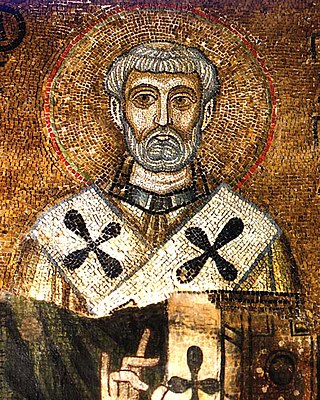
Clement of Rome, also known as Pope Clement I, was a bishop of Rome in the late first century AD. He is considered to be the first of the Apostolic Fathers of the Church, and a leading member of the Church in Rome in the late 1st century.
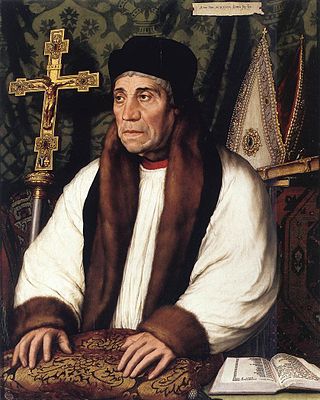
William Warham was the Archbishop of Canterbury from 1503 to his death in 1532.

Thomas Linacre or Lynaker was an English humanist scholar and physician, after whom Linacre College, Oxford, and Linacre House, a boys' boarding house at The King's School, Canterbury, were named.

Joseph Barber Lightfoot, known as J. B. Lightfoot, was an English theologian and Bishop of Durham.
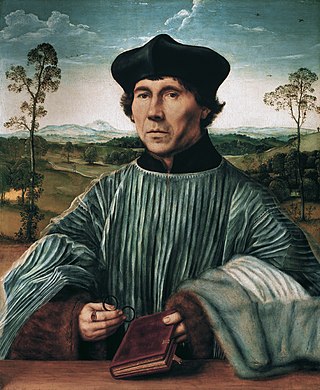
Stephen Gardiner was an English Catholic bishop and politician during the English Reformation period who served as Lord Chancellor during the reign of Queen Mary I and King Philip.
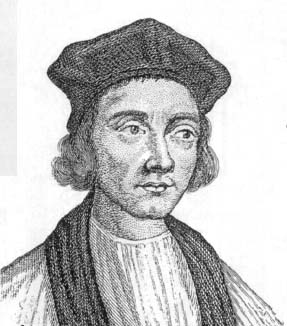
Cuthbert Tunstall was an English humanist, bishop, diplomat, administrator and royal adviser. He served as Bishop of Durham during the reigns of Henry VIII, Edward VI, Mary I and Elizabeth I.
The Apostolic Fathers, also known as the Ante-Nicene Fathers, were core Christian theologians among the Church Fathers who lived in the 1st and 2nd centuries AD who are believed to have personally known some of the Twelve Apostles or to have been significantly influenced by them. Their writings, though widely circulated in early Christianity, were not included in the canon of the New Testament. Many of the writings derive from the same time period and geographical location as other works of early Christian literature which came to be part of the New Testament.
William Knight was the Secretary of State to Henry VIII of England, and Bishop of Bath and Wells.
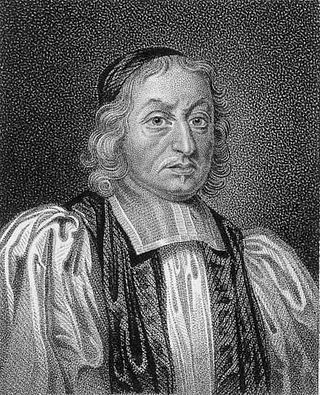
John Pearson was an English theologian and scholar.

Sir William Butts was a member of King Henry VIII of England's court and was the King's physician.

Charles Gore was a Church of England bishop, first of Worcester, then Birmingham, and finally of Oxford. He was one of the most influential Anglican theologians of the 19th century, helping reconcile the church to some aspects of biblical criticism and scientific discovery, while remaining Catholic in his interpretation of the faith and sacraments. Also known for his social action, Gore became an Anglican bishop and founded the monastic Community of the Resurrection as well as co-founded the Christian Social Union. He was the chaplain to Queen Victoria and King Edward VII.
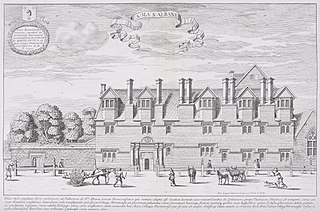
St Alban Hall, sometimes known as St Alban's Hall or Stubbins, was one of the medieval halls of the University of Oxford, and one of the longest-surviving. It was established in the 13th century, acquired by neighbouring Merton College in the 16th century but operated separately until the institutions merged in the late 19th century. The site in Merton Street, Oxford, is now occupied by Merton's Edwardian St Alban's Quad.
Events from the 1510s in England.
Events from the 1520s in England.

Thomas Grey, 2nd Marquess of Dorset was an English peer, courtier, soldier and landowner of the House of Grey.
John Shepreve (1509?–1542) was an English classical scholar and Hebraist.
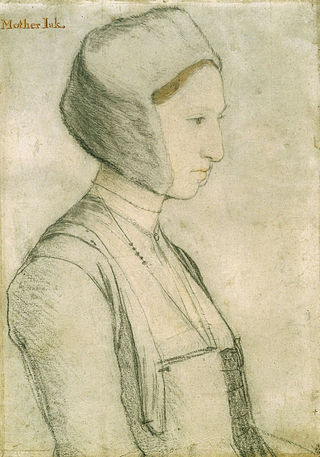
Margaret Clement or Clements (1508–1570), née Giggs, was one of the most educated women of the Tudor era and the foster daughter of Sir Thomas More.
Richard Woleman or Wolman was an English churchman, Archdeacon of Sudbury from 1522; and the Dean of Wells between 1529 and 1537.
References
- Attribution
 This article incorporates text from a publication now in the public domain : Herbermann, Charles, ed. (1913). "John Clement". Catholic Encyclopedia . New York: Robert Appleton Company. The entry cites:
This article incorporates text from a publication now in the public domain : Herbermann, Charles, ed. (1913). "John Clement". Catholic Encyclopedia . New York: Robert Appleton Company. The entry cites: - Charles Dodd, Church History (Brussels, 1737–1742), I, 202;
- John Pits, De Angliae Scriptoribus (Paris, 1619), 767;
- Anthony à Wood, Athenae Oxonienses, ed. Bliss (London, 1813–1820), I, 401;
- Robinson, Registers of St. Paul's School (London, s. d.), 19;
- Munk, College of Physicians (London, 1878), I, 26.